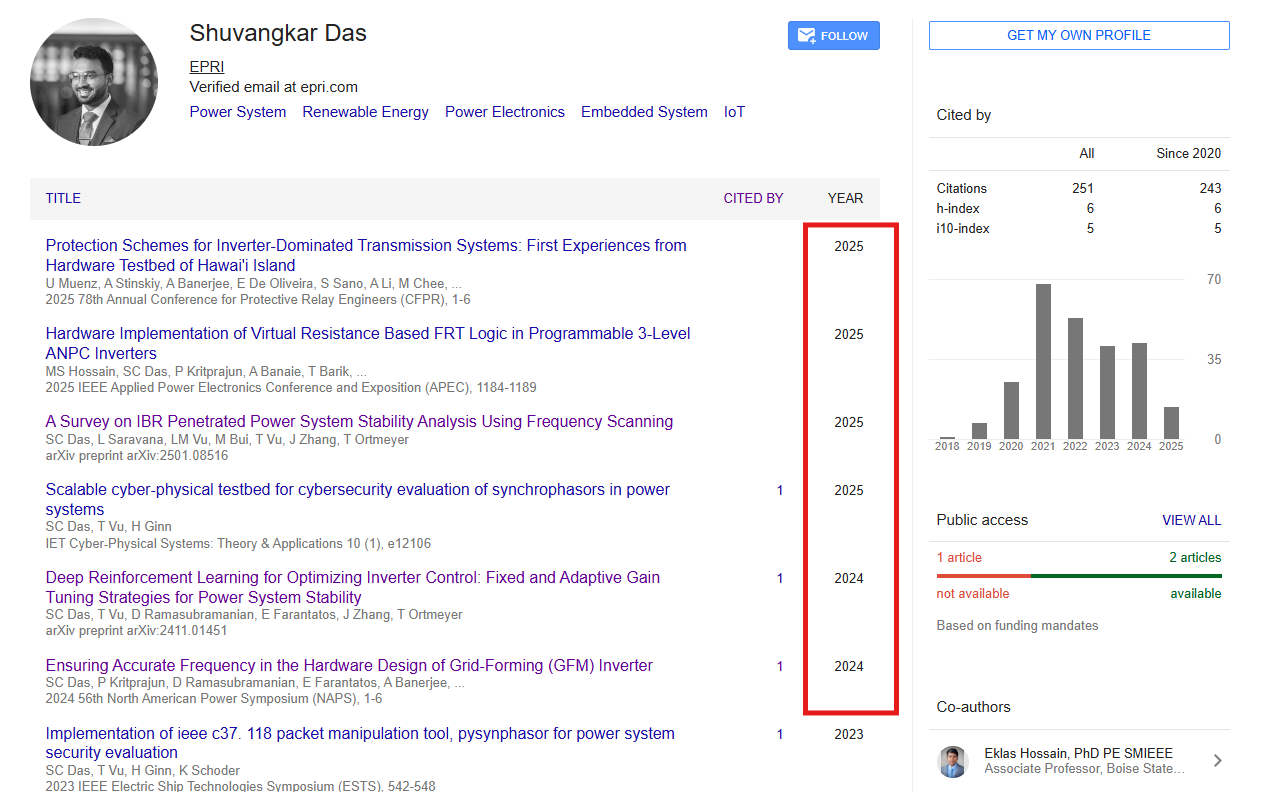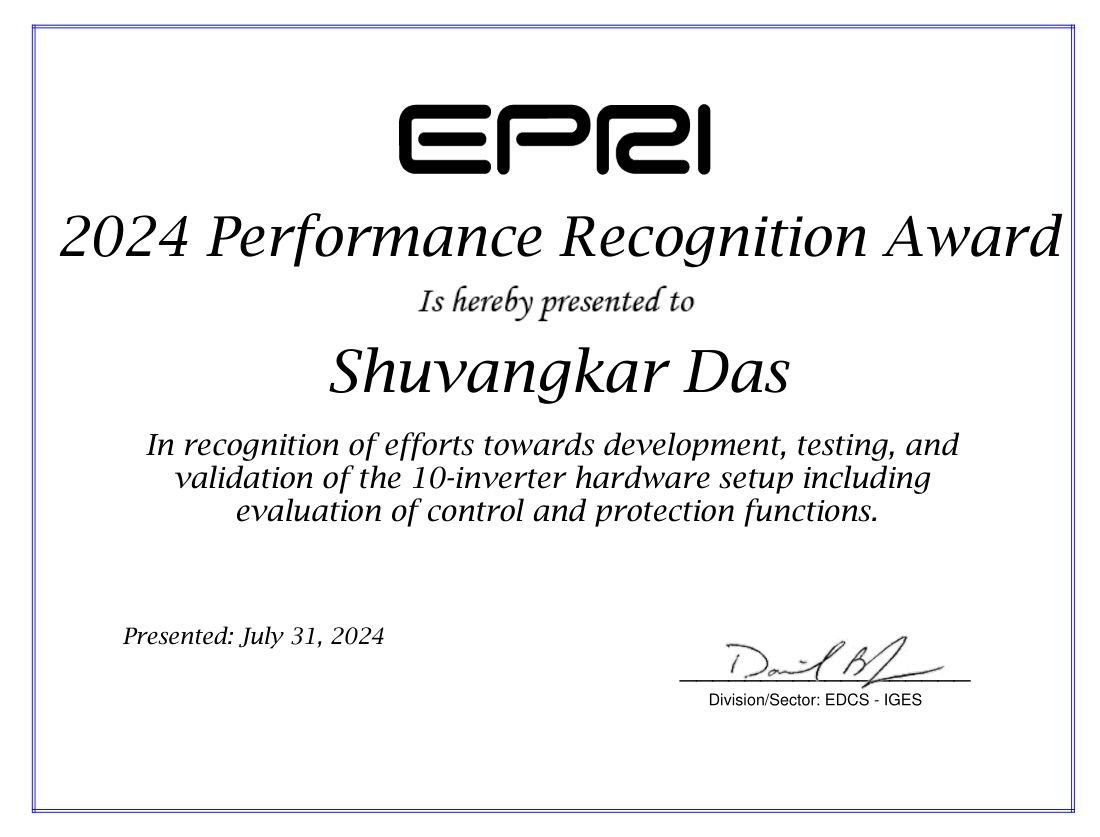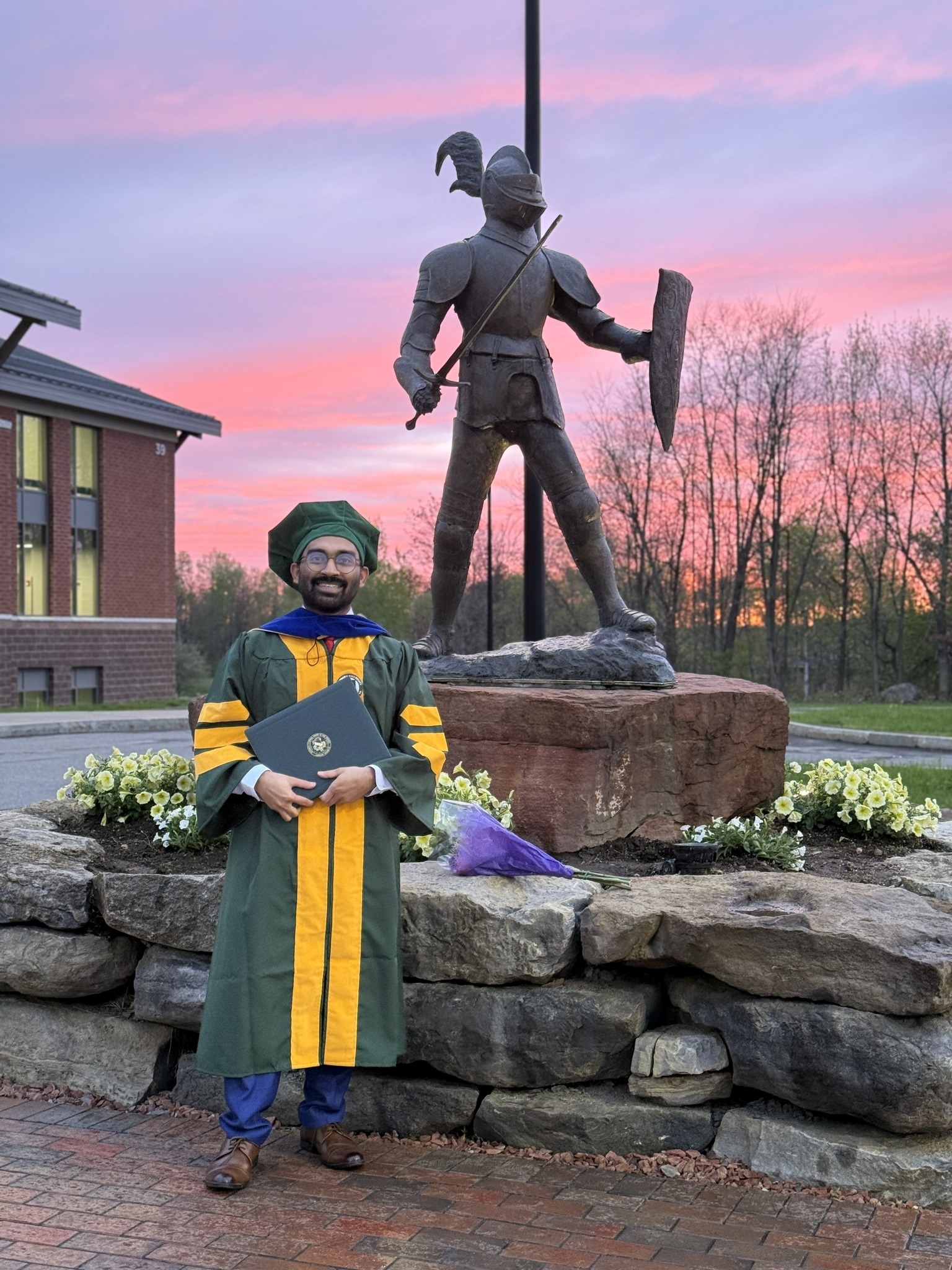How I Survived My Last Year of PhD While Doing a Full-Time Internship and Prepared 8+ Manuscripts and PhD Dissertation
When I started my PhD in 2021, I had no idea that my final year would be the most intense chapter of my academic journey. By the end of 2023, I had just one conference paper. I was under immense pressure: complete my dissertation, publish multiple papers, and simultaneously take on a full-time research internship. But I made it—8+ papers submitted or published, a defended dissertation, and a completed internship at one of the best institutes in the country.
This is not a story of superhuman productivity. It’s a story of desperation, clarity, and brutal focus.
Here is the list of my achievements in 2024
✅ Passed my PhD candidacy exam. Yay! Almost there!
✅ Successfully completed a one-year internship at EPRI, where I developed an 100% inverter-based power transmission system testbed.
✅ Received the “EPRI Performance Recognition Award 2024.”
✅ Landed a full-time role as a “DER Power Converter Researcher” at EPRI.
✅ Prepared 8+ papers (journals + conferences)—best productivity streak so far!
✅ Enjoyed almost a month of relaxation at the end of the year (waited so long for this).
✅ Marked safe from wasting time on social media.
✅ Leveled up my productivity pipeline on top of my Second Brain system.
Few papers already popped up in my scholar profile and more are under review and under publishing process.

Here is the EPRI Award I received for my performance during internship.

Part 1: The Breaking Point
December 2023 hit hard. I reviewed my CV and saw just one lonely paper. I knew I had solid ideas and working prototypes, but I was stuck in what I now call the “engineering mindset trap”: trying to make everything perfect—firmware, figures, simulations—before writing. That approach doesn’t work in research.
To make things worse, I was about to start a full-time internship at EPRI, which meant eight-hour workdays, regular meetings, and tight project deadlines. How could I manage this and also produce enough work for a PhD?
The honest answer: I almost gave up.
Part 2: A Mindset Shift
In January 2024, I made a decision that changed everything: I would stop trying to do everything, and start doing only what mattered.
Here’s what changed:
-
I stopped working on multiple ideas and picked just one clear thesis topic.
-
I ditched perfectionism and started writing even with incomplete results.
-
I prioritized action over learning. I stopped watching endless tutorials and started coding, writing, and submitting.
-
I used a nap + deep work routine: 3–4 hours of work in the morning, a nap, then 3–4 hours in the evening.
-
I blocked all social media and cut distractions to zero.
Most importantly, I learned a powerful lesson: If you want to move forward, done is better than perfect.
Part 3: Leveraging Tools and Systems
Here’s what kept me afloat technically and mentally:
-
Obsidian for organizing 5,000+ research notes.
-
VS Code LaTeX + Zotero for fast and automated writing.
-
Git + Overleaf for seamless paper revisions with collaborators.
-
Jupyter + Simulink + Python scripts for quick analysis and figures.
-
A Notion-based tracker for every paper’s progress, broken into tasks.
I also reused my own past work smartly—converting an old project into a new idea, splitting a long paper into two, and collaborating to offload some experiments.
Part 4: The Results
By May 2025:
- ✅ 8+ papers submitted or published.
- ✅ PhD defense passed.
- ✅ Internship at EPRI completed successfully.
- ✅ Zero burnout (yes, really).
And perhaps most importantly, I developed a new identity—not just as an engineer who builds, but as a researcher who writes, publishes, and shares.
Final Thoughts
I’m not sharing this to brag. I’m sharing it because if you’re stuck in your PhD, feel behind on publications, or feel like your side job is killing your research—you’re not alone.
What helped me wasn’t a productivity app, a new time-blocking method, or a magic AI assistant. It was this simple shift:
Focus on one thing. Take relentless action. Publish fast, improve later.
If you’re navigating the final year of your PhD, I hope this post helps. You don’t need to be perfect. You just need to keep moving.

Shuvangkar Das, PhD Knoxville, Tennessee, USA
☎ Connect with me
- Twitter: https://twitter.com/shuvangkar_das
- LinkedIn: https://www.linkedin.com/in/ShuvangkarDas/
- YouTube: https://www.youtube.com/ShuvangkarDas

Leave a comment